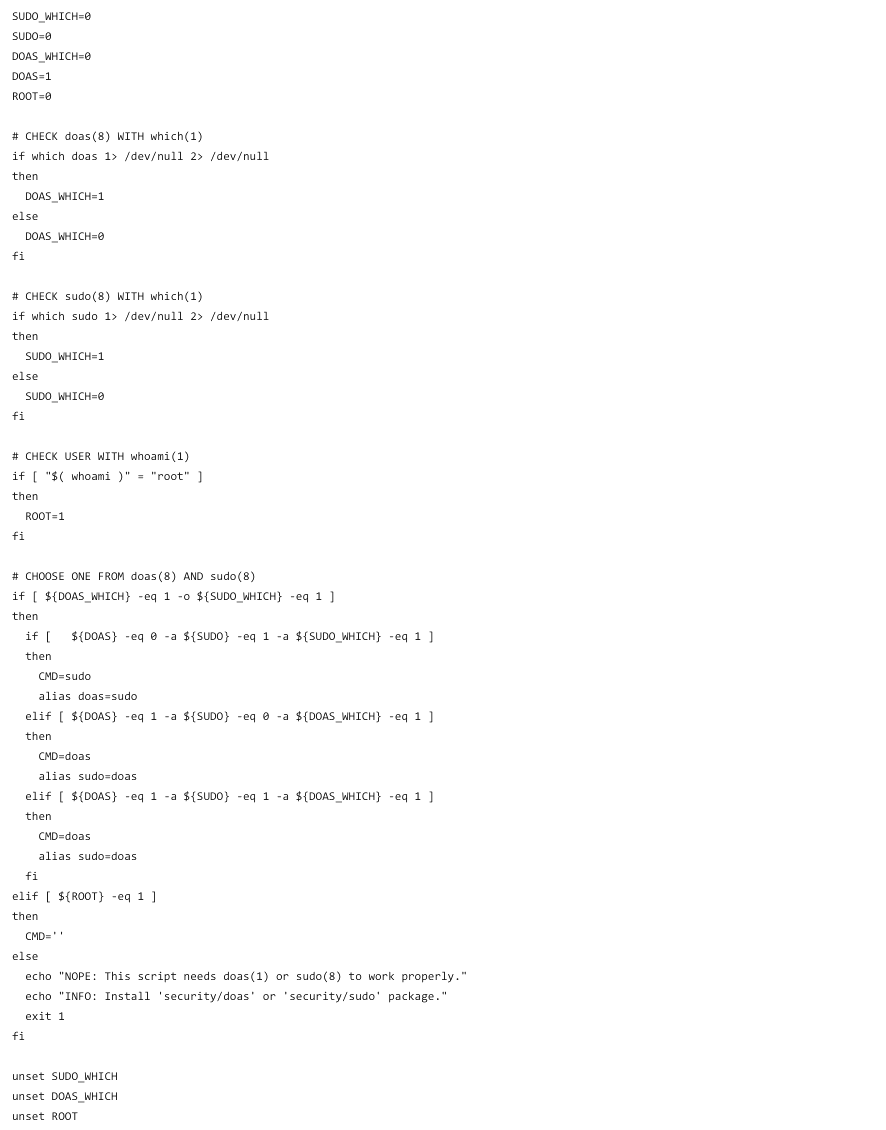Can you explain more of what type of completion you're talking about? The default shell supports autocompletion of programs in the PATH and files.It is possible to complete sh shell commands as in bash example.
Thank you
The FreeBSD /bin/sh supports some basic completion - but better switch to ZSH for best results:It is possible to complete sh shell commands as in bash example.
Thank you

It also works - I just prefer shells in which these work:Ok tsch instead?
# for I in *; do some-command -opts "${I}"; done
# ls /work | grep REAL | while read I; do some-command -opts "${I}"; done/usr/share/examples/tcsh/complete.tcshdoes anyone have any guide to suggest?
I noticed a couple of them don't work though. Throw various errors. But it does have some really useful ones./usr/share/examples/tcsh/complete.tcsh
dice@molly:~ % cat .cshrc
alias h history 25
alias j jobs -l
alias la ls -a
alias lf ls -FA
alias ll ls -lA
# A righteous umask
umask 22
set path = (/sbin /bin /usr/sbin /usr/bin /usr/local/sbin /usr/local/bin $HOME/bin)
setenv EDITOR vi
setenv PAGER less
setenv BLOCKSIZE K
setenv CLICOLOR
if ( -x /usr/local/bin/nvim ) then
alias vi nvim
setenv EDITOR nvim
endif
if ($?prompt) then
if ( -f ~/.csh.completions ) then
source ~/.csh.completions
endif
# An interactive shell -- set some stuff up
switch($TERM)
case "rxvt":
case "screen*":
case "xterm*":
set TITLE = "%{\033]0;%n@%m:%~\007%}"
breaksw
default:
set TITLE = ""
breaksw
endsw
set prompt = "${TITLE}%B%n@%m%b:%c03 %# "
set ellipsis
unset TITLE
set promptchars = "%#"
set filec
set history = 1000
set savehist = (1000 merge)
set autolist = ambiguous
set autoexpand
set autorehash
set mail = (/var/mail/$USER)
if ( $?tcsh ) then
bindkey "^W" backward-delete-word
bindkey -k up history-search-backward
bindkey -k down history-search-forward
bindkey "^[[1~" beginning-of-line
bindkey "^[[4~" end-of-line
bindkey "^[[3~" delete-char
endif
endifTraditionally, it hasn't. Since FreeBSD 14.0, it does. However, it may require writing at least 3 letters before auto-completion each time before it works properly.sh don't support autocompletion. Install other shell...
- command completion
- persistent history support
# History complete
bind ^[[A ed-search-prev-history
bind ^[[B ed-search-next-history- command completion
- persistent history support
Traditionally, it hasn't. Since FreeBSD 14.0, it does. However, it may require writing at least 3 letters before auto-completion each time before it works properly.
Yes it possible by using the source commandIs it possible to '-include' some code in .shrc? ie read some configurations from an independent file?
.. file The commands in the specified file are read and executed by the shell. The return
command may be used to return to the . command's caller. If file contains any ‘/’
characters, it is used as is. Otherwise, the shell searches the PATH for the file. If
it is not found in the PATH, it is sought in the current working directory.
. ~/my_config_file